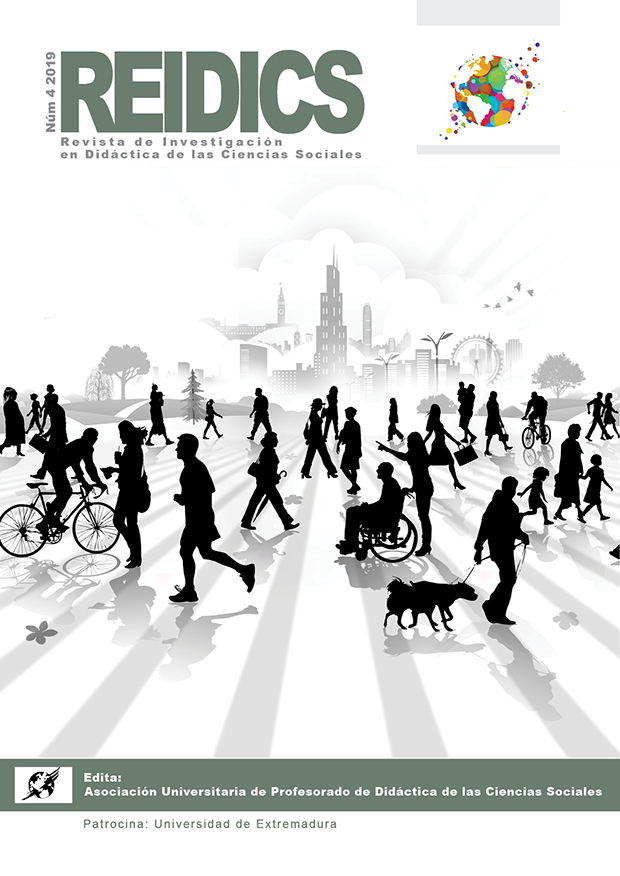Relevant social problems: interdisciplinary approach to integrated teaching of social sciences
DOI:
https://doi.org/10.17398/2531-0968.04.60Keywords:
didactic, teaching, social sciences, social problems, interdisciplinaryAbstract
This paper exposes the theoretical propositions that served to sustain the research on how social sciences' teaching from the approach of relevant social problems -RSP- constitutes a proposal for interdisciplinary integration to comprehend the social reality in the school. These statements are the product of the relationships between research and the methodological approach -a case study guided by the theory- used for it. We argue that promoting the application of the RSP approach in the school curricula implies a paradigm shift in the organization of the contents, since this come up with the need for a critical curriculum in which an interpretative view of reality and a critical vision of teaching and learning are incorporated. Thus, through the development of linguistic cognitive abilities students achieve an understanding of the social reality, a main purpose in social sciences' teaching, in order to be able to intervene this reality based on their social and civic action.
Downloads
Published
Issue
Section
License
Aquellos autores/as que tengan publicaciones con esta revista, aceptan los términos siguientes:
- Los autores/as conservarán sus derechos de autoría y garantizarán a la revista el derecho de primera publicación de su obra, el cual estará simultáneamente sujeto a la Licencia de reconocimiento de Creative Commons 4.0 BY-NC-SA que permite a terceros compartir la obra siempre que se indique su autor y su primera publicación en esta revista.
- Los autores/as podrán adoptar otros acuerdos de licencia no exclusiva de distribución de la versión de la obra publicada (p. ej.: depositarla en un archivo telemático institucional o publicarla en un volumen monográfico) siempre que se indique la publicación inicial en esta revista.
- Se permite y recomienda a los autores/as difundir su obra a través de Internet (p. ej.: en archivos telemáticos institucionales o en su página web) antes y durante el proceso de envío, lo cual puede producir intercambios interesantes y aumentar las citas de la obra publicada. (Véase El efecto del acceso abierto).
- Los autores y autoras han respetado la política de autoría de esta revista.







